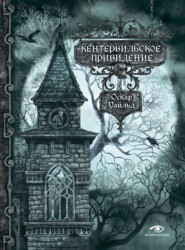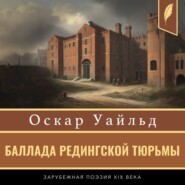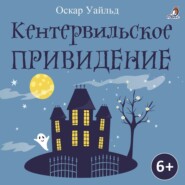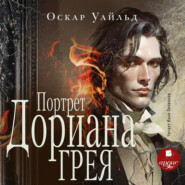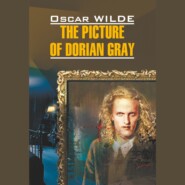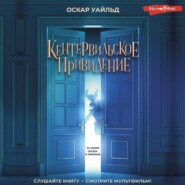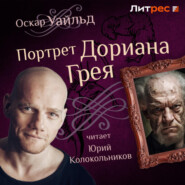По всем вопросам обращайтесь на: info@litportal.ru
(©) 2003-2024.
✖
Reviews
Настройки чтения
Размер шрифта
Высота строк
Поля
The production of The Cenci last week at the Grand Theatre, Islington, may be said to have been an era in the literary history of this century, and the Shelley Society deserves the highest praise and warmest thanks of all for having given us an opportunity of seeing Shelley’s play under the conditions he himself desired for it. For The Cenci was written absolutely with a view to theatric presentation, and had Shelley’s own wishes been carried out it would have been produced during his lifetime at Covent Garden, with Edmund Kean and Miss O’Neill in the principal parts. In working out his conception, Shelley had studied very carefully the æsthetics of dramatic art. He saw that the essence of the drama is disinterested presentation, and that the characters must not be merely mouthpieces for splendid poetry but must be living subjects for terror and for pity. ‘I have endeavoured,’ he says, ‘as nearly as possible to represent the characters as they probably were, and have sought to avoid the error of making them actuated by my own conception of right or wrong, false or true: thus under a thin veil converting names and actions of the sixteenth century into cold impersonations of my own mind..
‘I have avoided with great care the introduction of what is commonly called mere poetry, and I imagine there will scarcely be found a detached simile or a single isolated description, unless Beatrice’s description of the chasm appointed for her father’s murder should be judged to be of that nature.’
He recognised that a dramatist must be allowed far greater freedom of expression than what is conceded to a poet. ‘In a dramatic composition,’ to use his own words, ‘the imagery and the passion should interpenetrate one another, the former being reserved simply for the full development and illustration of the latter. Imagination is as the immortal God which should assume flesh for the redemption of mortal passion. It is thus that the most remote and the most familiar imagery may alike be fit for dramatic purposes when employed in the illustration of strong feeling, which raises what is low, and levels to the apprehension that which is lofty, casting over all the shadow of its own greatness. In other respects I have written more carelessly, that is, without an over-fastidious and learned choice of words. In this respect I entirely agree with those modern critics who assert that in order to move men to true sympathy we must use the familiar language of men.’
He knew that if the dramatist is to teach at all it must be by example, not by precept.
‘The highest moral purpose,’ he remarks, ‘aimed at in the highest species of the drama, is the teaching the human heart, through its sympathies and antipathies, the knowledge of itself; in proportion to the possession of which knowledge every human being is wise, just, sincere, tolerant and kind. If dogmas can do more it is well: but a drama is no fit place for the enforcement of them.’ He fully realises that it is by a conflict between our artistic sympathies and our moral judgment that the greatest dramatic effects are produced. ‘It is in the restless and anatomising casuistry with which men seek the justification of Beatrice, yet feel that she has done what needs justification; it is in the superstitious horror with which they contemplate alike her wrongs and their revenge, that the dramatic character of what she did and suffered consists.’
In fact no one has more clearly understood than Shelley the mission of the dramatist and the meaning of the drama.
And yet I hardly think that the production of The Cenci, its absolute presentation on the stage, can be said to have added anything to its beauty, its pathos, or even its realism. Not that the principal actors were at all unworthy of the work of art they interpreted; Mr. Hermann Vezin’s Cenci was a noble and magnificent performance; Miss Alma Murray stands now in the very first rank of our English actresses as a mistress of power and pathos; and Mr. Leonard Outram’s Orsino was most subtle and artistic; but that The Cenci needs for the production of its perfect effect no interpretation at all. It is, as we read it, a complete work of art – capable, indeed, of being acted, but not dependent on theatric presentation; and the impression produced by its exhibition on the stage seemed to me to be merely one of pleasure at the gratification of an intellectual curiosity of seeing how far Melpomene could survive the wagon of Thespis.
In producing the play, however, the members of the Shelley Society were merely carrying out the poet’s own wishes, and they are to be congratulated on the success of their experiment – a success due not to any gorgeous scenery or splendid pageant, but to the excellence of the actors who aided them.
HELENA IN TROAS
(Dramatic Review, May 22, 1880.)
One might have thought that to have produced As You Like It in an English forest would have satisfied the most ambitious spirit; but Mr. Godwin has not contented himself with his sylvan triumphs. From Shakespeare he has passed to Sophocles, and has given us the most perfect exhibition of a Greek dramatic performance that has as yet been seen in this country. For, beautiful as were the productions of the Agamemnon at Oxford and the Eumenides at Cambridge, their effects were marred in no small or unimportant degree by the want of a proper orchestra for the chorus with its dance and song, a want that was fully supplied in Mr. Godwin’s presentation by the use of the arena of a circus.
In the centre of this circle, which was paved with the semblance of tesselated marble, stood the altar of Dionysios, and beyond it rose the long, shallow stage, faced with casts from the temple of Bassæ; and bearing the huge portal of the house of Paris and the gleaming battlements of Troy. Over the portal hung a great curtain, painted with crimson lions, which, when drawn aside, disclosed two massive gates of bronze; in front of the house was placed a golden image of Aphrodite, and across the ramparts on either hand could be seen a stretch of blue waters and faint purple hills. The scene was lovely, not merely in the harmony of its colour but in the exquisite delicacy of its architectural proportions. No nation has ever felt the pure beauty of mere construction so strongly as the Greeks, and in this respect Mr. Godwin has fully caught the Greek feeling.
The play opened by the entrance of the chorus, white vestured and gold filleted, under the leadership of Miss Kinnaird, whose fine gestures and rhythmic movements were quite admirable. In answer to their appeal the stage curtains slowly divided, and from the house of Paris came forth Helen herself, in a robe woven with all the wonders of war, and broidered with the pageant of battle. With her were her two handmaidens – one in white and yellow and one in green; Hecuba followed in sombre grey of mourning, and Priam in kingly garb of gold and purple, and Paris in Phrygian cap and light archer’s dress; and when at sunset the lover of Helen was borne back wounded from the field, down from the oaks of Ida stole Œnone in the flowing drapery of the daughter of a river-god, every fold of her garments rippling like dim water as she moved.
As regards the acting, the two things the Greeks valued most in actors were grace of gesture and music of voice. Indeed, to gain these virtues their actors used to subject themselves to a regular course of gymnastics and a particular regime of diet, health being to the Greeks not merely a quality of art, but a condition of its production. Whether or not our English actors hold the same view may be doubted; but Mr. Vezin certainly has always recognised the importance of a physical as well as of an intellectual training for the stage, and his performance of King Priam was distinguished by stately dignity and most musical enunciation. With Mr. Vezin, grace of gesture is an unconscious result – not a conscious effort. It has become nature, because it was once art. Mr. Beerbohm Tree also is deserving of very high praise for his Paris. Ease and elegance characterised every movement he made, and his voice was extremely effective. Mr. Tree is the perfect Proteus of actors. He can wear the dress of any century and the appearance of any age, and has a marvellous capacity of absorbing his personality into the character he is creating. To have method without mannerism is given only to a few, but among the few is Mr. Tree. Miss Alma Murray does not possess the physique requisite for our conception of Helen, but the beauty of her movements and the extremely sympathetic quality of her voice gave an indefinable charm to her performance. Mrs. Jopling looked like a poem from the Pantheon, and indeed the personæmutæ were not the least effective figures in the play. Hecuba was hardly a success. In acting, the impression of sincerity is conveyed by tone, not by mere volume of voice, and whatever influence emotion has on utterance it is certainly not in the direction of false emphasis. Mrs. Beerbohm Tree’s Œnone was much better, and had some fine moments of passion; but the harsh realistic shriek with which the nymph flung herself from the battlements, however effective it might have been in a comedy of Sardou, or in one of Mr. Burnand’s farces, was quite out of place in the representation of a Greek tragedy. The classical drama is an imaginative, poetic art, which requires the grand style for its interpretation, and produces its effects by the most ideal means. It is in the operas of Wagner, not in popular melodrama, that any approximation to the Greek method can be found. Better to wear mask and buskin than to mar by any modernity of expression the calm majesty of Melpomene.
As an artistic whole, however, the performance was undoubtedly a great success. It has been much praised for its archæology, but Mr. Godwin is something more than a mere antiquarian. He takes the facts of archæology, but he converts them into artistic and dramatic effects, and the historical accuracy that underlies the visible shapes of beauty that he presents to us, is not by any means the distinguishing quality of the complete work of art. This quality is the absolute unity and harmony of the entire presentation, the presence of one mind controlling the most minute details, and revealing itself only in that true perfection which hides personality. On more than one occasion it seemed to me that the stage was kept a little too dark, and that a purely picturesque effect of light and shade was substituted for the plastic clearness of outline that the Greeks so desired; some objection, too, might be made to the late character of the statue of Aphrodite, which was decidedly post-Periclean; these, however, are unimportant points. The performance was not intended to be an absolute reproduction of the Greek stage in the fifth century before Christ: it was simply the presentation in Greek form of a poem conceived in the Greek spirit; and the secret of its beauty was the perfect correspondence of form and matter, the delicate equilibrium of spirit and sense.
As for the play, it had, of course, to throw away many sweet superfluous graces of expression before it could adapt itself to the conditions of theatrical presentation, but much that is good was retained; and the choruses, which really possess some pure notes of lyric loveliness, were sung in their entirety. Here and there, it is true, occur such lines as —
What wilt thou do? What can the handful still left? —
lines that owe their blank verse character more to the courtesy of the printer than to the genius of the poet, for without rhythm and melody there is no verse at all; and the attempt to fit Greek forms of construction to our English language often gives the work the air of an awkward translation; however, there is a great deal that is pleasing in Helena in Troas and, on the whole, the play was worthy of its pageant and the poem deserved the peplums.
It is much to be regretted that Mr. Godwin’s beautiful theatre cannot be made a permanent institution. Even looked at from the low standpoint of educational value, such a performance as that given last Monday might be of the greatest service to modern culture; and who knows but a series of these productions might civilise South Kensington and give tone to Brompton?
Still it is something to have shown our artists ‘a dream of form in days of thought,’ and to have allowed the Philistines to peer into Paradise. And this is what Mr. Godwin has done.
PLEASING AND PRATTLING
(Pall Mall Gazette, August 4, 1880.)
Sixty years ago, when Sir Walter Scott was inaugurating an era of historical romance, The Wolfe of Badenoch was a very popular book. To us its interest is more archæological than artistic, and its characters seem merely puppets parading in fourteenth-century costume. It is true our grandfathers thought differently. They liked novels in which the heroine exclaims, ‘Peace with thine impudence, sir knave. Dost thou dare to speak thus in presence of the Lady Eleanore de Selby?.. A greybeard’s ire shall never – ,’ while the hero remarks that ‘the welkin reddenes i’ the west.’ In fact, they considered that language like this is exceedingly picturesque and gives the necessary historical perspective. Nowadays, however, few people have the time to read a novel that requires a glossary to explain it, and we fear that without a glossary the general reader will hardly appreciate the value of such expressions as ‘gnoffe,’ ‘bowke,’ ‘herborow,’ ‘papelarde,’ ‘couepe,’ ‘rethes,’ ‘pankers,’ ‘agroted lorrel,’ and ‘horrow tallow-catch,’ all of which occur in the first few pages of The Wolfe of Badenoch. In a novel we want life, not learning; and, unfortunately, Sir Thomas Lauder lays himself open to the criticism Jonson made on Spenser, that ‘in affecting the ancients he writ no language.’ Still, there is a healthy spirit of adventure in the book, and no doubt many people will be interested to see the kind of novel the public liked in 1825.
Keep My Secret, by Miss G. M. Robins, is very different. It is quite modern both in manner and in matter. The heroine, Miss Olga Damien, when she is a little girl tries to murder Mr. Victor Burnside. Mr. Burnside, who is tall, blue-eyed and amber-haired, makes her promise never to mention the subject to any one; this, in fact, is the secret that gives the title to the book. The result is that Miss Damien is blackmailed by a fascinating and unscrupulous uncle and is nearly burnt to death in the secret chamber of an old castle. The novel at the end gets too melodramatic in character and the plot becomes a chaos of incoherent incidents, but the writing is clever and bright. It is just the book, in fact, for a summer holiday, as it is never dull and yet makes no demands at all upon the intellect.
Mrs. Chetwynd gives us a new type of widow. As a rule, in fiction widows are delightful, designing and deceitful; but Mrs. Dorriman is not by any means a Cleopatra in crape. She is a weak, retiring woman, very feeble and very feminine, and with the simplicity that is characteristic of such sweet and shallow natures she allows her brother to defraud her of all her property. The widow is rather a bore and the brother is quite a bear, but Margaret Rivers who, to save her sister from poverty, marries a man she does not love, is a cleverly conceived character, and Lady Lyons is an admirable old dowager. The book can be read without any trouble and was probably written without any trouble also. The style is prattling and pleasing.
The plot of Delamere is not very new. On the death of her husband, Mrs. De Ruthven discovers that the estates belong by right not to her son Raymond but to her niece Fleurette. As she keeps her knowledge to herself, a series of complications follows, but the cousins are ultimately united in marriage and the story ends happily. Mr. Curzon writes in a clever style, and though its construction is rather clumsy the novel is a thoroughly interesting one.
A Daughter of Fife tells us of the love of a young artist for a Scotch fisher-girl. The character sketches are exceptionally good, especially that of David Promoter, a fisherman who leaves his nets to preach the gospel, and the heroine is quite charming till she becomes civilised. The book is a most artistic combination of romantic feeling with realistic form, and it is pleasant to read descriptions of Scotch scenery that do not represent the land of mist and mountain as a sort of chromolithograph from the Brompton Road.
In Mr. Speight’s novel, A Barren Title, we have an impoverished earl who receives an allowance from his relations on condition of his remaining single, being all the time secretly married and the father of a grown-up son. The story is improbable and amusing.
On the whole, there is a great deal to be said for our ordinary English novelists. They have all some story to tell, and most of them tell it in an interesting manner. Where they fail is in concentration of style. Their characters are far too eloquent and talk themselves to tatters. What we want is a little more reality and a little less rhetoric. We are most grateful to them that they have not as yet accepted any frigid formula, nor stereotyped themselves into a school, but we wish that they would talk less and think more. They lead us through a barren desert of verbiage to a mirage that they call life; we wander aimlessly through a very wilderness of words in search of one touch of nature. However, one should not be too severe on English novels: they are the only relaxation of the intellectually unemployed.
(1) The Wolfe of Badenoch: A Historical Romance of the Fourteenth Century. By Sir Thomas Lauder. (Hamilton, Adams and Co.)
(2) Keep My Secret. By G. M. Robins. (Bentley and Son.)
(3) Mrs. Dorriman. By the Hon. Mrs. Henry Chetwynd. (Chapman and Hall.)
(4) Delamere. By G. Curzon. (Sampson Low, Marston and Co.)
(5) A Daughter of Fife. By Amelia Barr. (James Clarke and Co.)
(6) A Barren Title. By T. W. Speight. (Chatto and Windus.)
BALZAC IN ENGLISH
(Pall Mall Gazette, September 13, 1886.)
Many years ago, in a number of All the Year Round, Charles Dickens complained that Balzac was very little read in England, and although since then the public has become more familiar with the great masterpieces of French fiction, still it may be doubted whether the Comédie Humaine is at all appreciated or understood by the general run of novel readers. It is really the greatest monument that literature has produced in our century, and M. Taine hardly exaggerates when he says that, after Shakespeare, Balzac is our most important magazine of documents on human nature. Balzac’s aim, in fact, was to do for humanity what Buffon had done for the animal creation. As the naturalist studied lions and tigers, so the novelist studied men and women. Yet he was no mere reporter. Photography and procès-verbal were not the essentials of his method. Observation gave him the facts of life, but his genius converted facts into truths, and truths into truth. He was, in a word, a marvellous combination of the artistic temperament with the scientific spirit. The latter he bequeathed to his disciples; the former was entirely his own. The distinction between such a book as M. Zola’s L’Assommoir and such a book as Balzac’s Illusions Perdues is the distinction between unimaginative realism and imaginative reality. ‘All Balzac’s characters,’ said Baudelaire, ‘are gifted with the same ardour of life that animated himself. All his fictions are as deeply coloured as dreams. Every mind is a weapon loaded to the muzzle with will. The very scullions have genius.’ He was, of course, accused of being immoral. Few writers who deal directly with life escape that charge. His answer to the accusation was characteristic and conclusive. ‘Whoever contributes his stone to the edifice of ideas,’ he wrote, ‘whoever proclaims an abuse, whoever sets his mark upon an evil to be abolished, always passes for immoral. If you are true in your portraits, if, by dint of daily and nightly toil, you succeed in writing the most difficult language in the world, the word immoral is thrown in your face.’ The morals of the personages of the Comédie Humaine are simply the morals of the world around us. They are part of the artist’s subject-matter; they are not part of his method. If there be any need of censure it is to life, not to literature, that it should be given. Balzac, besides, is essentially universal. He sees life from every point of view. He has no preferences and no prejudices. He does not try to prove anything. He feels that the spectacle of life contains its own secret. ‘II crée un monde et se tait.’
And what a world it is! What a panorama of passions! What a pell-mell of men and women! It was said of Trollope that he increased the number of our acquaintances without adding to our visiting list; but after the Comédie Humaine one begins to believe that the only real people are the people who have never existed. Lucien de Rubempré, le Père Goriot, Ursule Mirouët, Marguerite Claës, the Baron Hulot, Madame Marneffe, le Cousin Pons, De Marsay – all bring with them a kind of contagious illusion of life. They have a fierce vitality about them: their existence is fervent and fiery-coloured; we not merely feel for them but we see them – they dominate our fancy and defy scepticism. A steady course of Balzac reduces our living friends to shadows, and our acquaintances to the shadows of shades. Who would care to go out to an evening party to meet Tomkins, the friend of one’s boyhood, when one can sit at home with Lucien de Rubempré? It is pleasanter to have the entrée to Balzac’s society than to receive cards from all the duchesses in May fair.
In spite of this, there are many people who have declared the Comédie Humaine to be indigestible. Perhaps it is: but then what about truffles? Balzac’s publisher refused to be disturbed by any such criticism as that. ‘Indigestible, is it?’ he exclaimed with what, for a publisher, was rare good sense. ‘Well, I should hope so; who ever thinks of a dinner that isn’t?’ And our English publisher, Mr. Routledge, clearly agrees with M. Poulet-Malassis, as he is occupied in producing a complete translation of the Comédie Humaine. The two volumes that at present lie before us contain César Birotteau, that terrible tragedy of finance, and L’lllustre Gaudissart, the apotheosis of the commercial traveller, the Duchesse de Langeais, most marvellous of modern love stories, Le Chef d’Œuvre Inconnu, from which Mr. Henry James took his Madonna of the Future, and that extraordinary romance Une Passion dans le Désert. The choice of stories is quite excellent, but the translations are very unequal, and some of them are positively bad. L’lllustre Gaudissart, for instance, is full of the most grotesque mistakes, mistakes that would disgrace a schoolboy. ‘Bon conseil vaut un œil dans la main’ is translated ‘Good advice is an egg in the hand’! ‘Écus rebelles’ is rendered ‘rebellious lucre,’ and such common expressions as ‘faire la barbe,’ ‘attendre la vente,’ ‘n’entendre rien,’ pâlir sur une affaire,’ are all mistranslated. ‘Des bois de quoi se faire un cure-dent’ is not ‘a few trees to slice into toothpicks,’ but ‘as much timber as would make a toothpick’; ‘son horloge enfermée dans une grande armoire oblongue’ is not ‘a clock which he kept shut up in a large oblong closet’ but simply a clock in a tall clock-case; ‘journal viager’ is not ‘an annuity,’ ‘garce’ is not the same as ‘farce,’ and ‘dessins des Indes’ are not ‘drawings of the Indies.’ On the whole, nothing can be worse than this translation, and if Mr. Routledge wishes the public to read his version of the Comédie Humaine, he should engage translators who have some slight knowledge of French.
César Birotteau is better, though it is not by any means free from mistakes. ‘To suffer under the Maximum’ is an absurd rendering of ‘subir le maximum’; ‘perse’ is ‘chintz,’ not ‘Persian chintz’; ‘rendre le pain bénit’ is not ‘to take the wafer’; ‘rivière’ is hardly a ‘fillet of diamonds’; and to translate ‘son cœur avait un calus à l’endroit du loyer’ by ‘his heart was a callus in the direction of a lease’ is an insult to two languages. On the whole, the best version is that of the Duchesse de Langeais, though even this leaves much to be desired. Such a sentence as ‘to imitate the rough logician who marched before the Pyrrhonians while denying his own movement’ entirely misses the point of Balzac’s ‘imiter le rude logicien qui marchait devant les pyrrhoniens, qui niaient le mouvement.’
We fear Mr. Routledge’s edition will not do. It is well printed and nicely bound; but his translators do not understand French. It is a great pity, for La Comédie Humaine is one of the masterpieces of the age.
Balzac’s Novels in English. The Duchesse de Langeais and Other Stories; César Birotteau. (Routledge and Sons.)
TWO NEW NOVELS
(Pall Mall Gazette, September 16, 1880.)
Most modern novels are more remarkable for their crime than for their culture, and Mr. G. Manville Fenn’s last venture is no exception to the general rule. The Master of the Ceremonies is turbid, terrifying and thrilling. It contains, besides many ‘moving accidents by flood and field,’ an elopement, an abduction, a bigamous marriage, an attempted assassination, a duel, a suicide, and a murder. The murder, we must acknowledge, is a masterpiece. It would do credit to Gaboriau, and should make Miss Braddon jealous. The Newgate Calendar itself contains nothing more fascinating, and what higher praise than this can be given to a sensational novel? Not that Lady Teigne, the hapless victim, is killed in any very new or subtle manner. She is merely strangled in bed, like Desdemona; but the circumstances of the murder are so peculiar that Claire Denville, in common with the reader, suspects her own father of being guilty, while the father is convinced that the real criminal is his eldest son. Stuart Denville himself, the Master of the Ceremonies, is most powerfully drawn. He is a penniless, padded dandy who, by a careful study of the ‘grand style’ in deportment, has succeeded in making himself the Brummel of the promenade and the autocrat of the Assembly Rooms. A light comedian by profession, he is suddenly compelled to play the principal part in a tragedy. His shallow, trivial nature is forced into the loftiest heroism, the noblest self-sacrifice. He becomes a hero against his will. The butterfly goes to martyrdom, the fop has to become fine. Round this character centres, or rather should centre, the psychological interest of the book, but unfortunately Mr. Fenn has insisted on crowding his story with unnecessary incident. He might have made of his novel ‘A Soul’s Tragedy,’ but he has produced merely a melodrama in three volumes. The Master of the Ceremonies is a melancholy example of the fatal influence of Drury Lane on literature. Still, it should be read, for though Mr. Fenn has offered up his genius as a holocaust to Mr. Harris, he is never dull, and his style is on the whole very good. We wish, however, that he would not try to give articulate form to inarticulate exclamations. Such a passage as this is quite dreadful and fails, besides, in producing the effect it aims at:
‘He – he – he, hi – hi – hi, hec – hec – hec, ha – ha – ha! ho – ho! Bless my – hey – ha! hey – ha! hugh – hugh – hugh! Oh dear me! Oh – why don’t you – heck – heck – heck – heck – heck! shut the – ho – ho – ho – ho – hugh – hugh – window before I – ho – ho – ho – ho!’
This horrible jargon is supposed to convey the impression of a lady coughing. It is, of course, a mere meaningless monstrosity on a par with spelling a sneeze. We hope that Mr. Fenn will not again try these theatrical tricks with language, for he possesses a rare art – the art of telling a story well.
A Statesman’s Love, the author tells us in a rather mystical preface, was written ‘to show that the alchemist-like transfiguration supposed to be wrought in our whole nature by that passion has no existence in fact,’ but it cannot be said to prove this remarkable doctrine.
It is an exaggerated psychological study of a modern woman, a sort of picture by limelight, full of coarse colours and violent contrasts, not by any means devoid of cleverness but essentially false and over-emphasised. The heroine, Helen Rohan by name, tells her own story and, as she takes three volumes to do it in, we weary of the one point of view. Life to be intelligible should be approached from many sides, and valuable though the permanent ego may be in philosophy, the permanent ego in fiction soon becomes a bore. There are, however, some interesting scenes in the novel, and a good portrait of the Young Pretender, for though the heroine is absolutely a creation of the nineteenth century, the background of the story is historical and deals with the Rebellion of ’45. As for the style, it is often original and picturesque; here and there are strong individual touches and brilliant passages; but there is also a good deal of pretence and a good deal of carelessness.










